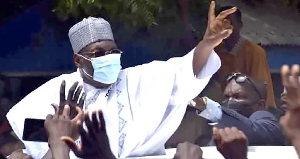The Cameroonian army (BIR) seems to have built itself quite a reputation in the past few days over the killings of 40 Boko Haram members at the borders of Cameroon with Nigeria.
Cameroon was considered by the French as the weakest link in the fight against Boko Haram since it was said to “have no operational unit capable of coping with the threat”. With this strike apparently, the stone that the builders rejected has become the cornerstone.
Not much is however known of their achievements of the Nigerian army in this mayhem, which seems to point out the helplessness of the latter against the ever increasing attacks of this terrorist group since these countries declared war against Boko Haram.
In fact, it seems that while Cameroon has clearly launched a “no nonsense” war against the jihadist group, Nigeria on the other hand has resorted to a rather lukewarm approach, with negotiations to free the kidnapped girls. No radical action has been taken by the Nigerian government, now making Nigeria look like the weakest link.
After the much talked about and criticized conference that took place in Paris between the concerned West African leaders and Western officials, one expected a rather strong synergic retaliation from the national defenses of these countries against Boko Haram.
Now looking at what the Cameroonian army has been able to achieve, if the military defenses of these countries allied together against the terrorists we would be talking about Boko Haram in the past tense, returning the kidnapped girls to their respective homes in Borno state, and there would not be a need of yet another summon of these presidents in London.
That our presidents did not find it more reasonable to unite in Abuja, Yaoundé or N´Djamena to discuss their problem with Boko Haram without being summoned by their former colonial masters in Paris is already enough shame. Of course, this meeting was much justified by the fact that Yaoundé and Abuja struggle to cooperate in police intelligence since their dispute over the Bakassi Peninsula.
Apparently, there had been absolutely no dialogue between Cameroon and Nigeria and until then, Cameroon had not accepted it had a problem. The enemy had therefore taken advantage of these shortcomings and had indeed set up dormant cells in several border towns in northern Cameroon.
This was demonstrated by the attacks inflicted by the sect on the elite unit of the Cameroonian army (BIR), the kidnap of the Moulin-Fournier family in February 2013 and father Georges Vandenbeusch in November of the same year, a Boko Haram attack launched on the Gamboru - Ngala border post killing more than 200 people, and the recent kidnap of 10 Chinese construction workers in Waza on the eve of the Paris summit.
Consequently, it is believed that the Nigerian and Cameroonian governments were unable to concert before the Paris summit and a strong collaboration between these two countries was not duly achieved in Paris leading to individual army retaliations from both countries. With yet another conference scheduled in London, one is tempted to think that the Paris summit was a waste of time and that these two countries may never come together on the battle field against Boko Haram as one defense unit.
On the other hand, one can observe Cameroon´s refusal to allow Nigerian troops to cross its borders and accept military help from French troops based in Chad and the Central African Republic as a political strategy to prevent France from using the Boko Haram situation to infiltrate Cameroon and achieve a complete political, military and economic control over Cameroon like it has already done with Mali, Niger, and the Central African Republic.
This also probably explains the presence of chinese battleships in the coast of Cameroon and the joint military training programm recently engaged in Douala by Cameroonian and Chinese troops. Definitely Paul Biya wants to remain the master of all engagements concerning the fight against Boko Haram.
With Nigeria`s large and well-funded army seemingly unable to quell the threat from Boko Haram, many feared that an impoverished Niger and an increasing lawless northern Cameroon could struggle to deal with a serious attack. But Cameroon is just maybe proving them wrong. Faced with the killings of over 40 Boko Haram members in the northern part of the country, one cannot help but notice that the Cameroonian president has acquired some sort of international recognition, thereby strengthening his political relationships with some countries.
In addition to that, the liberation of the three missionaries held hostage by Boko Haram (although they did not claim these hostages) for two months has undoubtedly “restored “ France´s trust in the Cameroonian defense.
Paul Biya is certainly intending to keep the ball in his own court while pulling some political gain in this battle, for the “interest” of Cameroon. Nevertheless, the Islamist sect still holds ten Chinese hostages kidnapped on the night of May 16th to 17th. As if to say that the “war” against Boko Haram announced by the president has just begun.
Fanny Nzie Camerounlink.net Int.
Opinions of Friday, 6 June 2014
Auteur: Fanny Nzie














